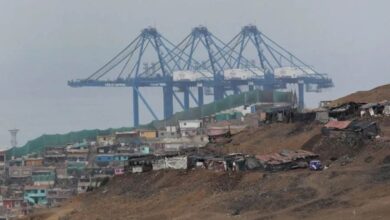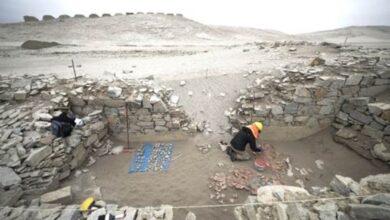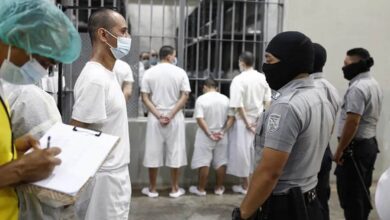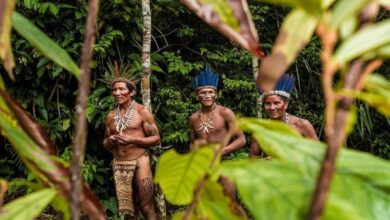Peru’s Controversial Law on Crimes Against Humanity Sparks Outrage

Peru’s Congress has passed a law introducing a statute of limitations for crimes against humanity, despite strong opposition from human rights organizations who argue that the measure will hinder ongoing investigations into serious abuses.
Peru’s Congress passed a law introducing a statute of limitations for crimes against humanity, despite opposition from human rights organizations that argue the measure will hamper ongoing investigations into serious abuses. The law passed with 15 votes in favor and 12 against in the Congress’ permanent commission after the right-wing dominated legislature initially approved it last month with 60 in favor, 36 against, and 11 abstentions.
“There are military and police officers aged 80, 85, and 90 who are unjustly imprisoned and others who are unjustly prosecuted for an undue application of crimes against humanity,” said Fernando Rospigliosi, a congressman for the right-wing Popular Force (FP) party. The FP is led by Keiko Fujimori, who promoted the law and is the daughter of former President Alberto Fujimori, 85, who was released last year after serving 16 years for human rights abuses during his decade-long rule in the 1990s.
The Inter-American Court of Human Rights this week urged Peru to annul or block the law, but President Dina Boluarte’s government swiftly rejected this and blasted it as interference. “I am outraged,” Prime Minister Gustavo Adrianzen told journalists on Wednesday, referring to the court issuing a precautionary measure “in the most unusual way and without any precedent in jurisprudence.”
The law, which now awaits the president’s signature, could potentially cut short dozens of investigations into human rights abuses committed before 2003. This period, marked by fighting between security forces and rebel groups, left a staggering 69,000 people dead or missing at the end of the last century.
The introduction of a statute of limitations for crimes against humanity in Peru has raised serious concerns about its impact on human rights investigations. This potential setback underscores the delicate balance between justice and reconciliation in the country.
“Those who can benefit most immediately from the law are former President Fujimori,” said Yvan Montoya, a law professor at the Pontifical Catholic University of Peru. “It seems to me they are betting this law can apply to several cases for which he is being tried.”
Fujimori, who was pardoned on humanitarian grounds after being sentenced to 25 years in 2007, faces charges in an upcoming trial of being a “perpetrator-by-means” of the murder of six people from rural areas in 1992, during clashes between security forces and the guerilla group Shining Path. The crime of which he is accused is considered a crime against humanity.
FP lawmakers argue the bill seeks justice for some 800 military personnel being “unjustly” investigated for crimes against humanity, a charge on which 36 military personnel have been sentenced since Fujimori’s presidency. Peru’s Congress on Thursday passed a law establishing a statute of limitations for crimes against humanity committed before 2002, a decision that human rights organizations have warned could encourage impunity and thwart investigations into serious abuses.
It could also benefit figures, including former president Alberto Fujimori and retired military personnel accused of — or even convicted for — crimes committed between 1980 and 2000 during an internal armed conflict that left thousands of victims. According to the Peruvian prosecutor’s office, the legislation will directly impact 550 victims and 600 cases, including investigations and judicial processes that would be archived or dismissed by the statute of limitations.
The Role of Alberto Fujimori and Political Implications
Fujimori, who governed Peru from 1990 to 2000, was sentenced in 2009 on charges of human rights abuses. He was accused of being the mastermind behind the killings of 25 Peruvians while the government fought the Shining Path communist rebels. The new law was promoted by the right-wing Popular Force (FP) party, led by Keiko Fujimori, the daughter of former president Fujimori, and it states that “no one will be prosecuted, condemned or sanctioned for war crimes or crimes against humanity committed before July 1, 2002.”
Initially approved in June, the law needed a second vote on Thursday. Peruvian President Dina Boluarte can enact or return the law to Congress with further recommendations. Boluarte has yet to say what she will do.
Several lawmakers who were military and navy personnel during the armed internal conflict supported the law. The Institute of Democracy and Human Rights of the Pontifical Catholic University of Peru said, “the law aims to limit the application of internal justice through the extinction of any criminal liability due to the passage of time.”
In June, several human rights organizations in Peru warned that if the law were to be approved, impunity would be promoted in all cases that are part of the internal armed conflict from 1980 to 2000, including a famous trial in which former President Fujimori was accused of the 1992 massacre of six farmers executed by a clandestine group of soldiers. Earlier this year, former Peruvian intelligence chief Vladimiro Montesinos and a close aide of Fujimori were sentenced to 19 years and eight months in prison in connection with the 1992 massacre.
Broader Implications for Peru and Latin America
According to a truth commission that studied the period of the conflict, the victims were primarily Indigenous people caught in clashes between security forces and members of the Shining Path rebel group. The commission estimates that the conflict killed 70,000 people.
The passage of this law highlights a broader issue in Latin America, where there is often a struggle between efforts to seek justice for past human rights abuses and political forces that aim to protect influential figures from accountability. Countries like Argentina, Chile, and Colombia have faced similar challenges in balancing justice and reconciliation for crimes committed during periods of dictatorship and internal conflict.
In Argentina, the government has taken significant steps to address the human rights abuses of the Dirty War, while Chile continues to grapple with the legacy of Pinochet’s dictatorship. Colombia’s peace process with the FARC includes mechanisms for transitional justice to address crimes committed during the decades-long conflict.
Peru’s new law raises grave concerns that it could set a dangerous precedent for other countries in the region. If former military and political leaders can avoid accountability for human rights violations, it could undermine justice for victims. The international community, including human rights organizations and judicial bodies like the Inter-American Court of Human Rights, must act to prevent such a scenario.
The ongoing debate in Peru underscores the need for robust legal frameworks that protect human rights and ensure those responsible for serious crimes are held accountable. As the country moves forward, civil society and international organizations will need to advocate for justice and support the victims of past abuses.
Also read: Peru Sees Decline in Coca Cultivation After Eight Years of Increase
The introduction of a statute of limitations for crimes against humanity in Peru has sparked significant controversy and concern among human rights advocates. As the country faces domestic and international pressure, the coming days and months will be critical in determining the future of human rights accountability in Peru.





